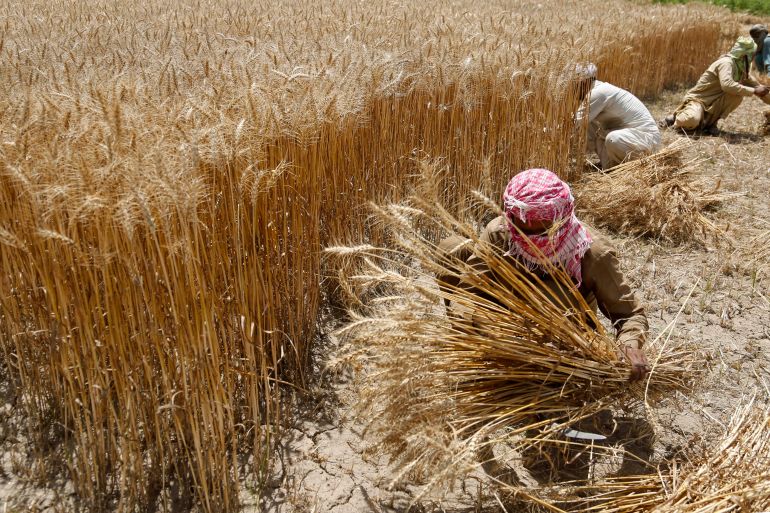HRW slams Pakistan for ‘forcibly evicting’ thousands of farmers
The rights group raises concerns over the $7bn Ravi Riverfront Urban Development Project near Lahore city.

Islamabad, Pakistan – A prominent rights body has slammed Pakistani authorities for “forcibly evicting” thousands of farmers for an infrastructure project near Lahore city, the capital of the eastern Punjab province.
In a report published on Tuesday, Human Rights Watch said the authorities should “enforce environmental protections and reform colonial-era laws that grant the government broad powers to acquire land for private as well as public use”.
Keep reading
list of 4 itemsPakistan election panel seeks change in law guiding its powers
Where does Pakistan find itself year after Imran Khan lost power?
Pakistan is making a mistake in ignoring the US for China
The $7bn Ravi Riverfront Urban Development Project (RUDA) was launched in 2020 by the then Prime Minister Imran Khan to resolve issues such as pollution, sewage, water, housing, and employment while also reviving the historic city’s “lost glory”.
During the launch, Khan had claimed the project would also help provide solutions for civic problems afflicting Lahore, the country’s second-largest city with a population of more than 13 million people.
The proposed plan also aimed to create the “world’s largest riverfront city” by acquiring land to house about 12 million more people.
However, according to the HRW, the government acted on behalf of private developers to acquire the necessary property, 85 percent of which was agricultural land on which nearly a million farmers, labourers and business owners depended for their livelihoods.
“Affected farmers who have challenged the legality of the land seizures have faced intimidation and criminal charges brought by the governmental Ravi Urban Development Authority (RUDA), provincial authorities, and project developers, even as these legal challenges remain pending in court,” it said.
The rights group said since 2020, the Pakistani authorities “criminally charged more than 100 farmers with resisting or refusing to hand over land they occupied”.
The farmers filed a petition at the Lahore High Court (LHC), which in January last year declared the project illegal as it violated laws concerning the acquisition of land and compensation.
The court’s decision, however, was partially overruled a month later by the country’s Supreme Court, which said the project could continue only on the land the government had already acquired.
The farmers allege the authorities continue to seize land despite the top court’s order, an allegation the RUDA denies.
The HRW said it spoke to at least 14 farmers earlier this year, who alleged they were either evicted or threatened with eviction by the authorities.
“Accounts by farmers along with corroborating photos and video show evidence of intimidation, harassment, and use of force to evict farmers. The exact number of people affected or forcibly evicted has been difficult to determine, including by groups representing farmers,” its report said.
The HRW report further cited environmentalists who have warned that the project could alter the flow of the Ravi River, significantly increasing flooding risks.
Pakistan is yet to recover from catastrophic floods last year that submerged nearly a third of the nation.
Lawyer Fahad Malik, who represents the farmers affected by the project, told Al Jazeera that out of roughly 43,700 hectares (108,000 acres) of land sought by the government, 28,330 hectares (70,000 acres) is agricultural land.
“Landowners have little influence or say in determining the adequacy or impact of the proposed ‘public purpose’ for which the land is being acquired and can realistically only question the amount of compensation being received,” Malik said.